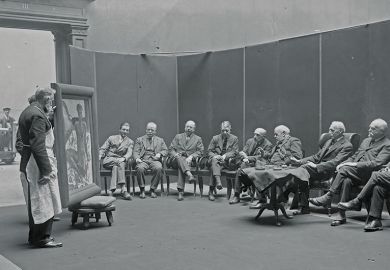Higher education groups have said proposals to measure “teaching intensity” and grade inflation at UK universities are “flawed” and should be removed from future plans for the teaching excellence framework.
In its submission to the government’s consultation on the subject-level version of the TEF, the Russell Group says that the plan to use the number of teaching hours and class sizes as a measure of quality would misinform students and “risks undermining institutional diversity”. This is because different aspects of learning, such as working independently, are important but difficult to quantify, the submission says.
The MillionPlus group of post-92 universities agrees that the measures proposed were “arbitrary and misleading”. Suggesting a link between class sizes, the number of hours, or even the seniority of a teacher – as proposed in the consultation – and attainment and destination is highly problematic, MillionPlus says in its response.
Submissions from university groups universally agree that a grade inflation metric should not be introduced at subject level and most went further, to say that they also had concerns about its use at institutional level.
The reasons behind increases in the grades awarded are complex and range from provider to provider, according to GuildHE, so this could lead to some institutions being unfairly penalised.
The University Alliance says that, as grade inflation is tied to many of the registration conditions for the Office for Students, “it may be best if this metric were part of the OfS’ regulatory activities, rather than the TEF”.
According to Universities UK, for the subject-level TEF to be viable, “substantial changes” to the proposals would be required.
UUK says it had surveyed its members that had taken part in an initial pilot and found that only 25 per cent felt that either one of the models offered for subject-level assessment was suitable to implement in future.
The consultation and pilot offered two options: one that would give subjects the same rating as a provider’s overall TEF rating unless there was evidence that a subject’s performance is markedly different; and a second “bottom-up” approach in which subject-level ratings fed into the provider-level rating.
About 30 universities took part in the subject-level pilot, although their results will not be made public. A second pilot is scheduled to take place in 2018-19.
However, of the 20 universities that provided UUK with feedback, only 21 per cent thought that the proposed models would provide potential students with useful or accurate information.
None of the surveyed institutions said they believed that it was appropriate to include a teaching intensity metric in the TEF, UUK says.
Paul Ashwin, professor of higher education at Lancaster University, said that, as the submissions point out, much of the proposed data are not robust enough.
“The responses show that if the government wants to do a subject-level TEF properly it will be very expensive,” Professor Ashwin said. “The government has to decide whether it is too invested to row back on it, otherwise it will either end up with an ineffective subject-level TEF or it will cost the government substantially more to make it work.”
Register to continue
Why register?
- Registration is free and only takes a moment
- Once registered, you can read 3 articles a month
- Sign up for our newsletter
Subscribe
Or subscribe for unlimited access to:
- Unlimited access to news, views, insights & reviews
- Digital editions
- Digital access to THE’s university and college rankings analysis
Already registered or a current subscriber?








